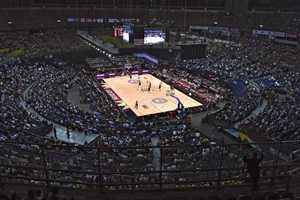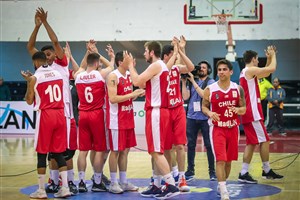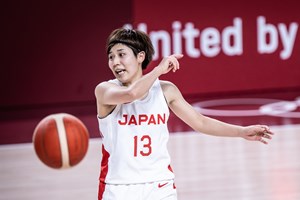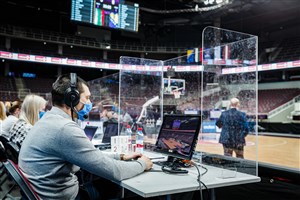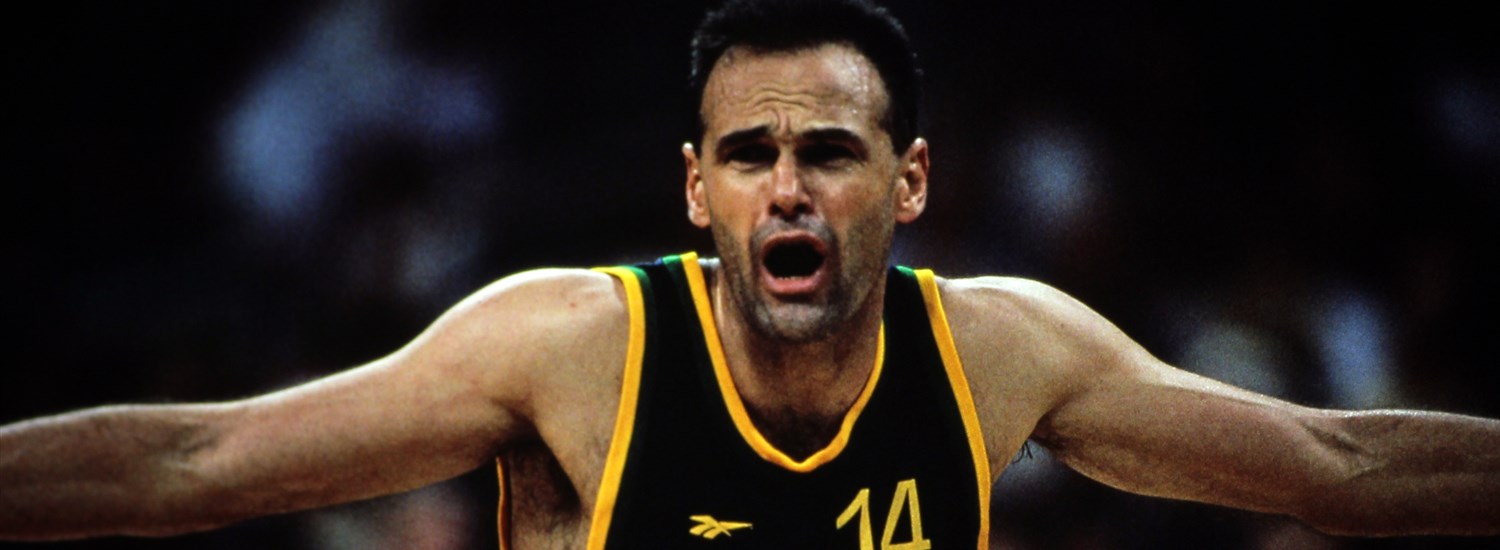
Oscar's numbers awed the Americas
A lot has been written about Brazilian player Oscar Schmidt, one of the most formidable scorers in the history of world basketball. Almost all accolades have been spent already, and they were all objectively well-deserved. So for this, we’ll try to talk about him strictly from a statistical point of view, which will give irrefutable evidence of his value, all the while the solidity of his numbers will, of course, leave us in awe.
Although he’s already spent 16 years out of the courts, his 19 seasons as a professional athlete were a permanent avalanche of points and victories. The iconic Oscar, a member of the FIBA Hall of Fame since 2010, left his distinctive mark in each competition he attended. He was convincing in the Tournament of the Americas. He participated in six editions (1980, 1984, 1988, 1989, 1992, and 1995) and, except for the first, in the five remaining, he was the highest scorer, with an average of 28.0 points in 46 games.
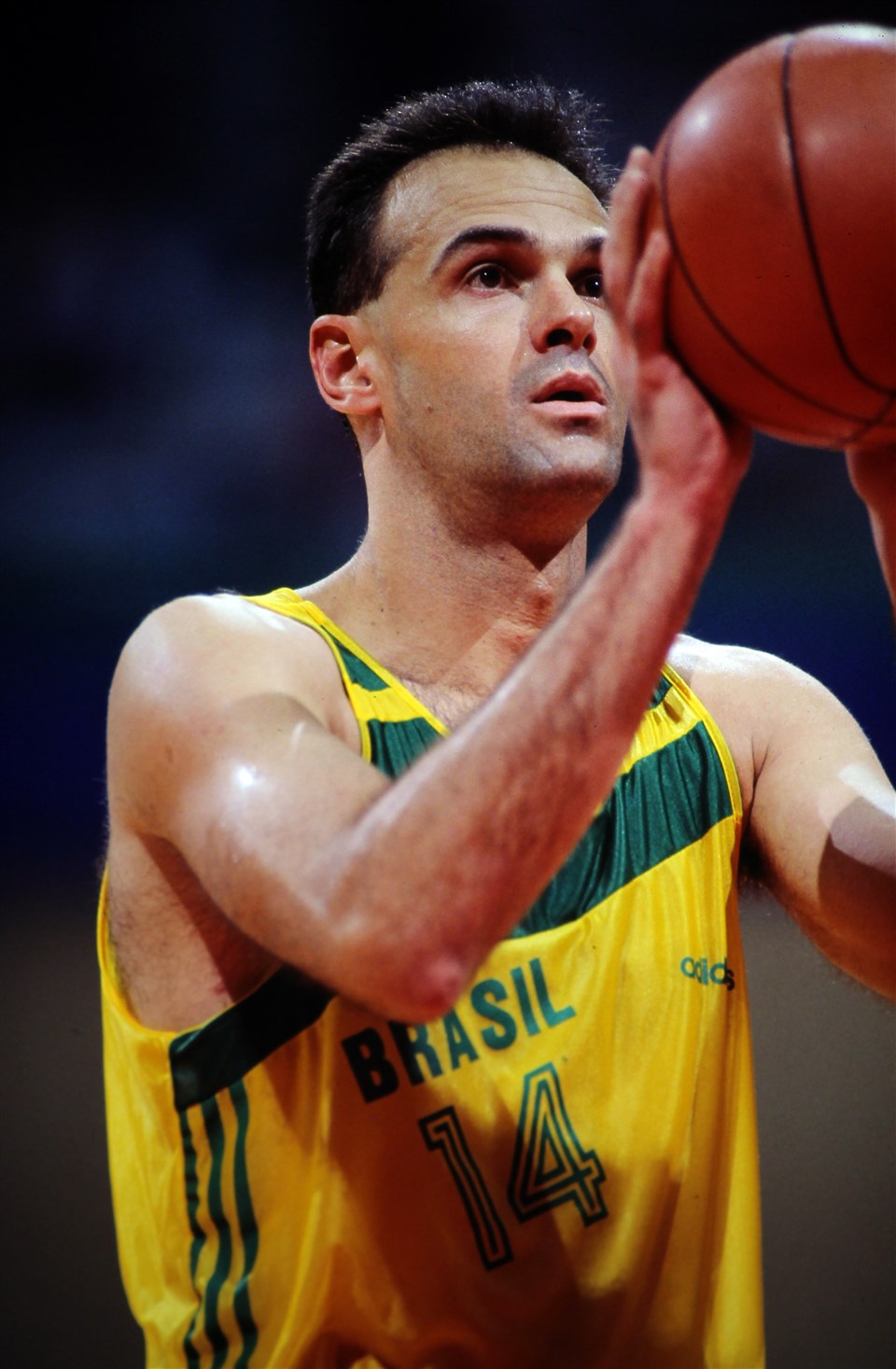
But here we’ll only talk about the 80s, his first four editions where he led Brazil to two continental titles. In his first experience in the Tournament of the Americas, Oscar was only 22 years old, and he was yet to become Brazil's undisputed star. The squad featured other quality players, such as center Marquinhos, shooter Marcel, and point guard Carioquinha. The offense entirely distributed. At the time, Oscar was getting used to his new position as a small forward. When he began playing professionally, in the mid-70s, he played center, due to his 6’7” height.
Likewise, in Puerto Rico 1980, it was no surprise that after six games, he ended ranked among the best offensive players, with an average of 18.7 points, 50% in field goals, and an immaculate 32-32 in free throws. Despite this context, he scored 21% of Brazil’s total points.
When he came back to the 1984 Tournament of the Americas, he was already 26 and had spent two seasons in the demanding Lega de Italia, where he played for Caserta. In Sao Paulo, as local, he began with a "modest" performance, in what would be a constant in the decade's tournament, adding 14 points against Uruguay. As the competition went on, Schmidt's hand warmed up, achieving 29 points against Panama, 27 against Argentina, increasing to 30 against Mexico, and making 28 against Cuba. Against the Dominican Republic, Schmidt made the most points – 34. Near the end of the tournament, his contributions were less – 20 against Canada, and 27 against Puerto Rico.
Brazil was the undefeated champion after eight games in 1984, getting the ticket to the Los Angeles Games. Now, Oscar Schmidt was hands-down the tournament's highest scorer – at a time when three-pointers hadn't been incorporated – with an average of 26.1 points. This performance's merit is even more exceptional when looking at the scoring proportions: 62% in field throws, 84% in free throws, and 4.5 rebounds. This time, his contributions represented 27% of all of Brazil’s points.
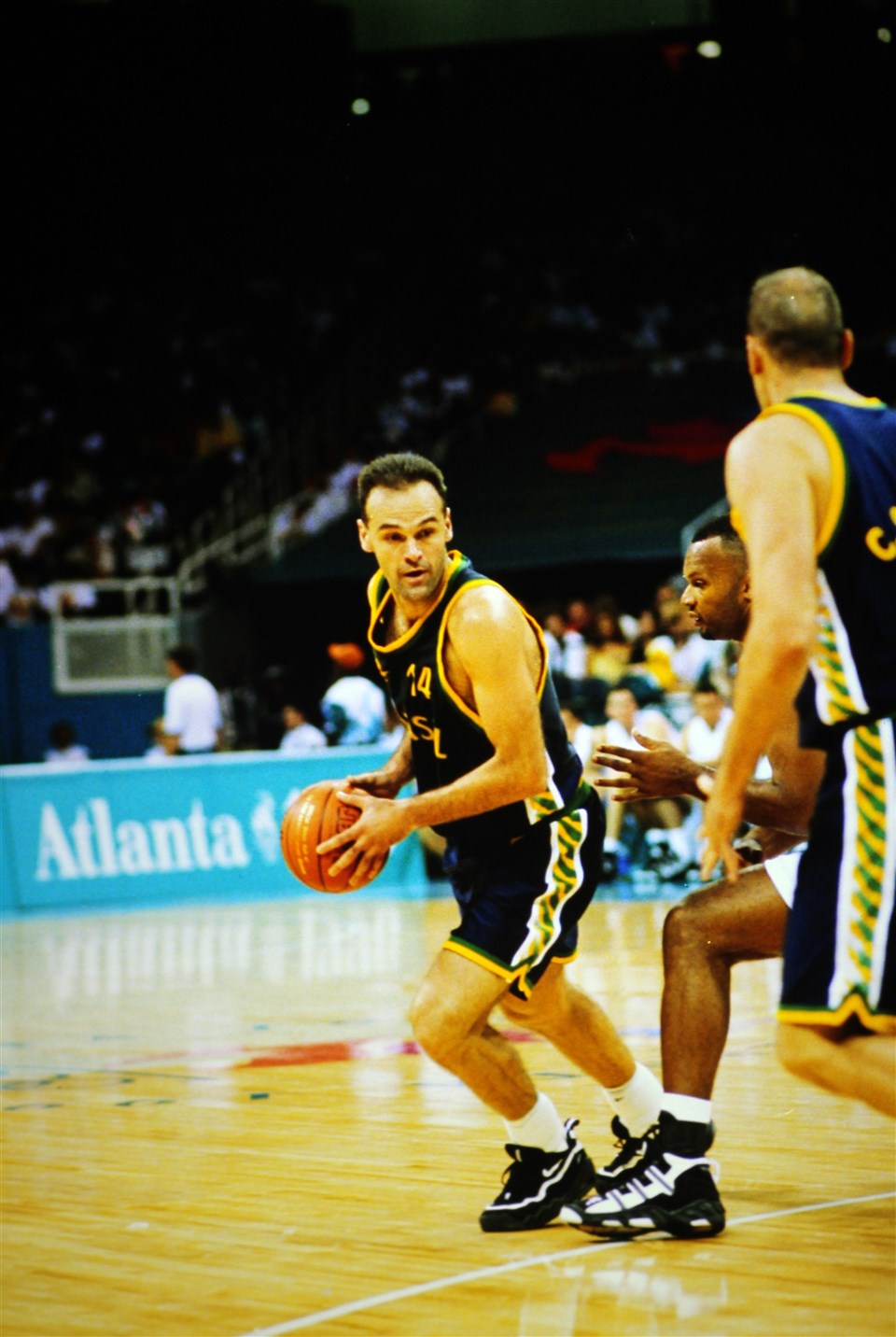
When basketball in the Americas came together again in 1988, Oscar was at the highest point of his career (at the age of 30) and was a world star. He led the most significant surprise up to that moment, winning the gold medal in the Pan American Games, where Brazil defeated the USA at their own home (Indianapolis, 1987), and Schmidt was coming from a remarkable campaign in Italy, where he had averaged 37.3 points per game. In Montevideo, meanwhile, he started “slow” once again, adding 18 points against Argentina. However, he then crushed Puerto Rico with 40 points of the 98 made by the team. After moderating his contributions against Venezuela (18), he once again shone against Mexico (35), even though the Brazilians suffered an unexpected defeat and, against Uruguay and in a game that went to overtime, made 44 points of Brazil's 96. There, he was demolishing, with 11/15 in two-pointers, and 5/8 three-pointers. From that game up until the final, he was unstoppable, scoring 29 points in front of the Canadians, 36 against Uruguay in the semifinals, and 20 against Puerto Rico in the tournament's final.
For Brazil, it was their second win, securing the qualification to the Seoul Olympic Games. For Oscar, it meant to become once again the highest scorer, achieving an average of 30.0 points, supported by an excellent effectiveness rate of 58% in two-pointers and 36% in three-pointers, plus an average of 5.5 rebounds. At the time, his interventions represented 31% of the team's points.
At the 1989 Tournament of the Americas, the first one that served as an Olympic qualifying tournament, the 31-year-old Brazilian climbed up to remarkable numbers in Mexico City. As usual, he revved up his engine slowly, but surely, and went from a mere 15 points against Paraguay to 24 against Canada. When Brazil scored 131 points against Venezuela, Oscar contributed 44 (11/19 in 2PTs, and 1/9 in 3PTs). Then came two 24-point games against Ecuador and Argentina. Later, after Cuba, he once again let loose and scored 40 points, with achieving 13 of 21 field goals. However, the best would come in the semifinal against the United States, where he reached his most significant score of 45 points (the team achieved a total of 96), with 9/17 in three-pointers, despite losing the match. In the game for the bronze, against Venezuela, Schmidt scored 31 points, with 11/19 field goals, and Brazil grasped the ticket to the 1990 World Cup in Argentina.
Oscar concluded with an average of 32.8 points, based on 61% in two-pointers and an outstanding 42% in three-pointers, contributing 28% of the team’s total points.
The Brazilian icon closed that first decade, scoring 823 points in 30 games, winning 26 of them. Schmidt achieved two championship titles, an average of 27.4 points per game (60% in 2PTs and 39% in 3PTs), leaving no room for doubt that he was the star that enjoyed the most his first steps in the Tournament of the Americas.
Alejandro Pérez
FIBA

